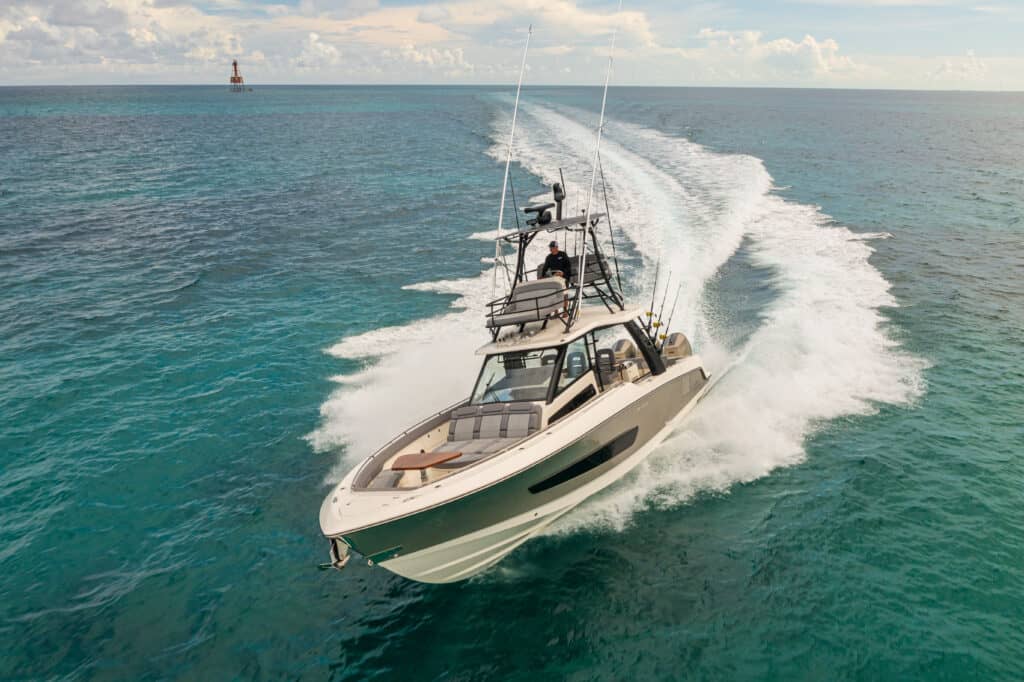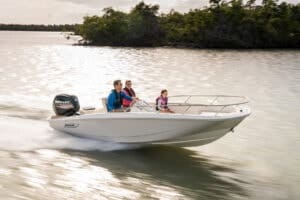When it comes to buying a boat, finding the perfect boat is just the first step. You’ll also need to factor in how owning a boat will impact your budget, lifestyle, and storage space. If you’re planning on financing the purchase with a loan, there’s another important consideration to make: timing. Knowing the best time to apply for a boat loan can save you money and help ensure a smooth borrowing experience.
Before you apply for a boat loan, it’s important to review your credit and finances. Once you’re confident in your financial standing, you can start looking into boat loan options. However, it’s worth noting that the timing of your application can impact the interest rates and terms you’ll be offered.
At Trident Funding, we offer boat loans that can be customized to fit your unique situation. We can help you determine the best time to apply for a boat loan based on your financial goals, credit score, and other factors. Applying for a loan at the right time can help you get the best rates and terms, which can ultimately save you money and make the borrowing process more seamless.
When to Apply for a Boat Loan
The last few years have been a bit “off-kilter” for consumers. During the pandemic and post-COVID, both supply chain and inventory issues have contributed to a fiercely competitive consumer market. Finding available new or used boats has been more difficult (and expensive) than ever, and many would-be buyers found themselves rushing to snatch up the right boat as it comes along, or even settling for their second or third picks.
As a result, buyers may not have had the luxury of waiting for the right time to apply for a boat loan, instead feeling forced to pounce on their purchase with little notice.
Thankfully, the tides are slowly beginning to turn, and many markets are seeing hints of a cool-down. This means that, once again, buyers will be able to shop around and buy their boat at the right time for them.
But when is the best time to apply for a boat loan?
When You Can Find the Right Boat (At the Right Price)
Boat inventory changes frequently, based on things like model year releases, manufacturer incentives, and seasonal shifts. Therefore, the timing of your purchase could depend heavily on the type of boat you’re buying, your location, your budget, and whether you want to buy new or used.
New model years are usually launched in late spring or early summer, so you’ll need to wait until then if you’re eyeing a brand new model. Dealer and manufacturer incentives are common at the end of the summer or in the colder seasons, and you may be able to snag a better deal then (assuming the inventory is available). Of course, if you’re planning to buy a used boat, you may be able to find deals year-round or even shop for boats online in different areas of the country.
You can sometimes apply for a boat loan prior to finding that perfect boat, too. In fact, some boat lenders offer loan pre-approval for up to 180 days, depending on your income and credit profile. That way, the financing process has already been started by the time you stumble upon your dream boat, making it faster and easier to finalize the purchase.
When You Can Afford It
This may seem obvious, but borrowers should only apply for a new boat loan (and plan to purchase a boat) when they can afford to do so. Buying a boat can mean taking on a substantial monthly payment, so it’s important to analyze your household budget and determine exactly what you can afford.
Your monthly boat payment is calculated based on your boat’s purchase price, your interest rate, and the loan term (or how long you choose to repay that loan). If you want to see how much boat you can afford or what sort of monthly payment you might be facing, be sure to check out our boat loan calculator.
Of course, your monthly boat payment isn’t the only expense to keep in mind when determining whether or not you’re ready to buy. You should also consider the other boat-related expenses that you’re likely to encounter, such as registration, maintenance, repairs, operating costs, storage, and more.
When You Can Afford Your Down Payment
In many cases, financing a boat doesn’t mean borrowing 100% of the purchase. Instead, borrowers are usually required to contribute a down payment toward the purchase.
Your down payment requirement can vary from one lender to the next, and may also be based on factors like your credit history, the type of boat you’re buying, and even its purchase price. Down payment requirements on boat loans generally range from 10% to 20%, though Trident Funding also offers 0% down financing for boat loans up to $100,000.
When Your Credit Score is High Enough
Your credit history — and therefore, your credit score — will play a notable role in your boat loan approval as well as the loan repayment terms and interest rates you’re offered. If you are working to build or repair your credit, you might want to wait a bit longer before applying for a loan.
The lower your credit score, the higher the chance that you’ll be offered a more expensive boat loan or that you may even need to add a cosigner in order to qualify. For example, a $200,000 boat loan might be offered at 6.37% APR if you have excellent credit (FICO of 800 to 850), resulting in a monthly payment of about $1,475.
However, if your credit score is fair (680 to 699), you might be offered that same loan at 10.49% APR. This would not only bump your monthly payment up to $1,995, but would also increase the total cost of your loan. Waiting to apply for a boat loan until your credit score improved could save you a lot of money.
You can see Trident Funding’s current rates, and get an idea of what you’ll be offered based on your credit score, by visiting our boat loan interest rate estimator.
When Your Debt-to-Income Ratio (DTI) is Low Enough
Boat lenders will consider your credit history, your income, and your existing level of debt when deciding whether or not to approve your application. One important factor is your debt-to-income ratio, or DTI.
DTI is an equation used to compare your existing debt burden with your current discretionary income. If too much of your income is already spoken for by other lenders, you are generally viewed as a more risky borrower… and you might not get approved for the boat loan you want. (Or, if you are approved, you could be offered a shorter loan term and/or higher rates than if you were a less risky applicant.)
In this case, it could be smart to wait a bit longer and pay off some debt before applying for a boat loan.
When Storage Options Are Available
In the excitement of boat shopping and planning your purchase, it can sometimes be easy to overlook one important factor: Where will you store your boat?
If you’re hoping to rent a slip at a popular marina or yacht club, you might be surprised to learn that lengthy wait lists are common. Rather than put yourself in a situation where you have a new boat and nowhere to put it, it could be better to wait until a desired slip is available.
(Of course, if you plan to trailer your boat and store it at home, this is a moot point!)
Applying for the Right Boat Loan
Depending on your lender and the terms you choose, you could be paying off your next boat loan for anywhere from seven to 20 years from now! That’s why it’s incredible important to not only choose the right lender, but also apply at the right time.
If you’ve checked the math on your budget, have a down payment ready, and know that your credit score is in a good place, you might be ready to apply for a boat loan today. However, some borrowers may choose to wait a bit longer until they can boost their credit score or save up a bit more money for their dream boat.
Trident Funding is ready for you when you think it’s the best time to apply for a boat loan online in just minutes or in-person at one of our Trident Funding locations. You’ll usually have a decision within 24 to 48 hours, too, so you can get on the water faster than you think!





